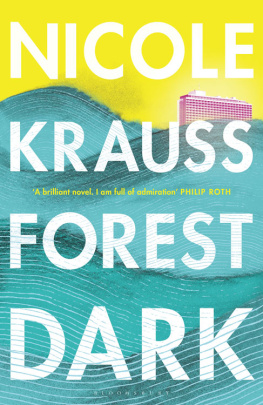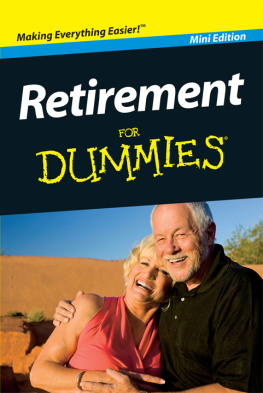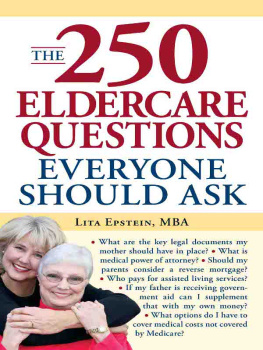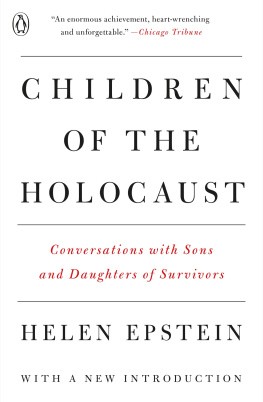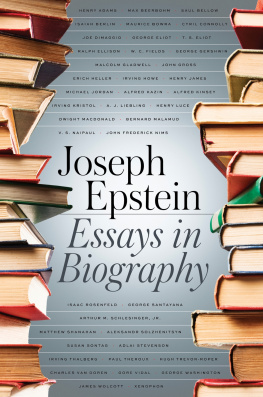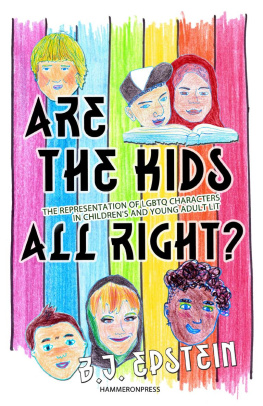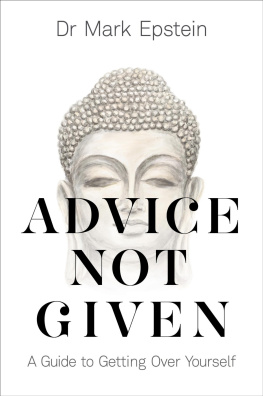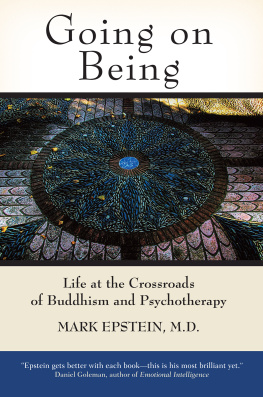
Forest Dark
To my father

Also by Nicole Krauss
GREAT HOUSE
THE HISTORY OF LOVE
MAN WALKS INTO A ROOM

The expulsion from Paradise is in its main significance eternal. Consequently the expulsion from Paradise is final, and life in this world irrevocable, but the eternal nature of the process makes it nevertheless possible that not only could we remain forever in Paradise, but that we are currently there in actual fact, no matter whether we know it here or not.
KAFKA
At the time of his disappearance, Epstein had been living in Tel Aviv for three months. No one had seen his apartment. His daughter Lucie had come to visit with her children, but Epstein installed them in the Hilton, where he met them for lavish breakfasts at which he only sipped tea. When Lucie asked to come over, hed begged off, explaining that the place was small and modest, not fit for receiving guests. Still reeling from her parents late divorce, shed looked at him through narrow eyesnothing about Epstein had previously been small or modestbut despite her suspicion shed had to accept it, along with all the other changes that had come over her father. In the end, it was the police detectives who showed Lucie, Jonah, and Maya into their fathers apartment, which turned out to be in a crumbling building near the ancient port of Jaffa. The paint was peeling, and the shower let down directly above the toilet. A cockroach strutted majestically across the stone floor. Only after the police detective stomped on it with his shoe did it occur to Maya, Epsteins youngest and most intelligent child, that it may have been the last to see her father. If Epstein had ever really lived there at allthe only things that suggested he had inhabited the place were some books warped by the humid air that came through an open window and a bottle of the Coumadin pills hed taken since the discovery of an atrial fibrillation five years earlier. It could not have been called squalid, and yet the place had more in common with the slums of Calcutta than it did with the rooms in which his children had stayed with their father on the Amalfi coast and Cap dAntibes. Though, like those other rooms, this one also had a view of the sea.
In those final months Epstein had become difficult to reach. No longer did his answers come hurtling back regardless of the time of day or night. If before hed always had the last word, it was because hed never not replied. But slowly, his messages had become more and more scarce. Time expanded between them because it had expanded in him: the twenty-four hours hed once filled with everything under the sun was replaced by a scale of thousands of years. His family and friends became accustomed to his irregular silences, and so when he failed to answer anything at all during the first week of February, no one became instantly alarmed. In the end, it was Maya who woke in the night feeling a tremor along the invisible line that still connected her to her father, and asked his cousin to check on him. Moti, who had been the beneficiary of many thousands of dollars from Epstein, caressed the ass of the sleeping lover in his bed, then lit a cigarette and stuffed his bare feet into his shoes, for though it was the middle of the night, he was glad to have a reason to talk to Epstein about a new investment. But when Moti arrived at the Jaffa address scrawled on his palm, he rang Maya back. There must be a mistake, he told her, there was no way her father would live in such a dump. Maya phoned Epsteins lawyer, Schloss, the only one who still knew anything, but he confirmed that the address was correct. When Moti finally roused the young tenant on the second floor by holding down the buzzer with a stubby finger, she confirmed that Epstein had in fact been living above her for the last few months, but that it had been many days since shed last seen him, or heard him, really, for she had gotten used to the sound of him pacing on her ceiling during the night. Though she couldnt know it as she stood sleepily at the door addressing the balding cousin of her upstairs neighbor, in the rapid escalation of events that followed, the young woman would become accustomed to the sound of many people coming and going above her head, tracing and retracing the footsteps of a man she hardly knew and yet had come to feel oddly close to.
The police only had the case for half a day before it was taken over by the Shin Bet. Shimon Peres called the family personally to say that mountains would be moved. The taxi driver whod picked Epstein up six days earlier was tracked down and taken in for questioning. Scared out of his wits, he smiled the whole time, showing his gold tooth. Later he led the Shin Bet detectives to the road along the Dead Sea and, following some confusion as a result of nerves, managed to locate the spot where he had let Epstein off, an intersection near the barren hills halfway between the caves of Qumran and Ein Gedi. The search parties fanned out across the desert, but all they turned up was Epsteins empty monogrammed briefcase, which, as Maya put it, only made the possibility of his transubstantiation seem more real.
During those days and nights, gathered together in the rooms of the Hilton suite, his children tossed back and forth between hope and grief. A phone was always ringingSchloss alone was manning threeand each time it did, they attached themselves to the latest information that came through. Jonah, Lucie, and Maya learned things about their father that they hadnt known. But in the end, they got no closer to finding out what he had meant by it all, or what had become of him. As the days passed, the calls had come less often, and brought no miracles. Slowly they adjusted themselves to a new reality in which their father, so firm and decisive in life, had left them with a final act that was utterly ambiguous.
A rabbi was brought in who explained to them in heavily accented English that Jewish law required absolute certainty about the death before the mourning rituals could be observed. In cases where there was no corpse, a witness to the death was considered enough. And even with no corpse and no witness, a report that the person had been killed by thieves, or drowned, or dragged off by a wild animal was enough. But in this case there was no corpse, no witness, and no report. No thieves, or wild animals, as far as anyone knew. Only an inscrutable absence where once their father had been.
No one could have imagined it, and yet it came to seem like a fitting end. Death was too small for Epstein. In retrospect, not even a real possibility. In life he had taken up the whole room. He wasnt large, only uncontainable. There was too much of him; he constantly overspilled himself. It all came pouring out: the passion, the anger, the enthusiasm, the contempt for people and the love for all mankind. Argument was the medium in which he was raised, and he needed it to know he was alive. He fell out with three-quarters of everyone he had fallen in with; those that remained could do no wrong, and were loved by Epstein forever. To know him was either to be crushed by him or madly inflated. One hardly recognized oneself in his descriptions. He had a long line of protgs. Epstein breathed himself into them, they became larger and larger, as did everyone he chose to love. At last they flew like a Macys parade balloon. But then one day they would snag themselves on Epsteins high moral branches and burst. From then on, their names were anathema. In his inflationary habits Epstein was deeply American, but in his lack of respect for boundaries and his tribalism he was not. He was something else, and this something else led to misunderstanding again and again.
Next page
